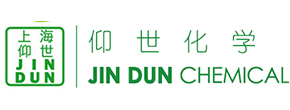Environmental groups urge U.S. government organizations to install photovoltaic systems on canals
2023/7/25
The letter, signed by a number of climate and environmental groups, highlights the opportunity to install photovoltaic systems on 8,000 kilometers of open canals in the US. It is estimated that 25GW of photovoltaic systems will be installed in these regions, enough to power nearly 20 million homes.
“The U.S. Department of the Interior’s Bureau of Reclamation has full authority to implement this plan. The U.S. Congress has granted the Department of the Interior express authority to award leases to developers to use Bureau of Reclamation land, including for the construction of power generation facilities, transmission lines, and other appropriate uses,” the letter said.
There are significant additional benefits of installing photovoltaic systems on the canal. First, the development of public lands is saved. The Energy Bill 2020 calls for the deployment of 25GW of renewable energy on public lands without destroying additional habitat. And installing photovoltaic systems on canals in the United States can achieve this goal.
In addition, a photovoltaic canopy over the canal reduces water evaporation through shading and cooling. The environmental groups estimate that tens of billions of gallons of freshwater evaporation would be prevented each year. This is proving to be crucial because despite a wet winter, much of the western United States remains in a prolonged drought that is likely to worsen as climate change intensifies.
"The Department of the Interior's Bureau of Reclamation and the states that depend on the Colorado River are already considering unprecedented water conservation measures to protect the water supply of 40 million people," the letter said. "In a study of similar initiatives in California's aqueducts, scientists estimated that shade provided by photovoltaic systems could reduce the loss of 63 billion gallons of water to evaporation each year, equivalent to the annual water consumption of approximately 2 million people."
Many of the canals operated by the U.S. government are located in environmental justice communities, which means that installing more photovoltaic systems could help these communities reduce their use of fossil fuels, the communities most affected by the negative health impacts of fossil fuel production and consumption.
The Central Valley Project in California is a large canal system that consumes about 1 billion kilowatt-hours of electricity per year just to pump water. Installing photovoltaic systems on these canals will provide an efficient water delivery system that can replace the diesel generators currently used.
“Given the Department of the Interior’s Bureau of Reclamation’s long history with hydroelectric power, installing photovoltaic systems on its canals would be a purely side benefit, and even help address power generation shortages as hydroelectric facilities are unable to operate due to low water levels,” the letter reads.
Installing photovoltaic systems on canals is becoming more and more popular around the world. Such projects, many of them large utility-scale PV projects, are currently being developed in California, India, Spain and France.
JIN DUN CHEMICAL has built a special (meth) acrylic monomer manufacturing base in ZHEJIANG province. This makes sure the stable supply of HEMA, HPMA, HEA, HPA, GMA with high level quality. Our special acrylate monomers are widely used for thermosetting acrylic resins, crosslinkable emulsion polymers, acrylate anaerobic adhesive, two-component acrylate adhesive, solvent acrylate adhesive, emulsion acrylate adhesive, paper finishing agent and painting acrylic resins in adhesive.We have also developed the new and special (meth) acrylic monomers and derivatives. Such as the fluorinated acrylate monomers, It can be widely used in coating leveling agent, paints, inks, photosensitive resins, optical materials, fiber treatment, modifier for plastic or rubber field. We are aiming to be the top supplier in the field of special acrylate monomers, to share our rich experience with better quality products and professional service.

